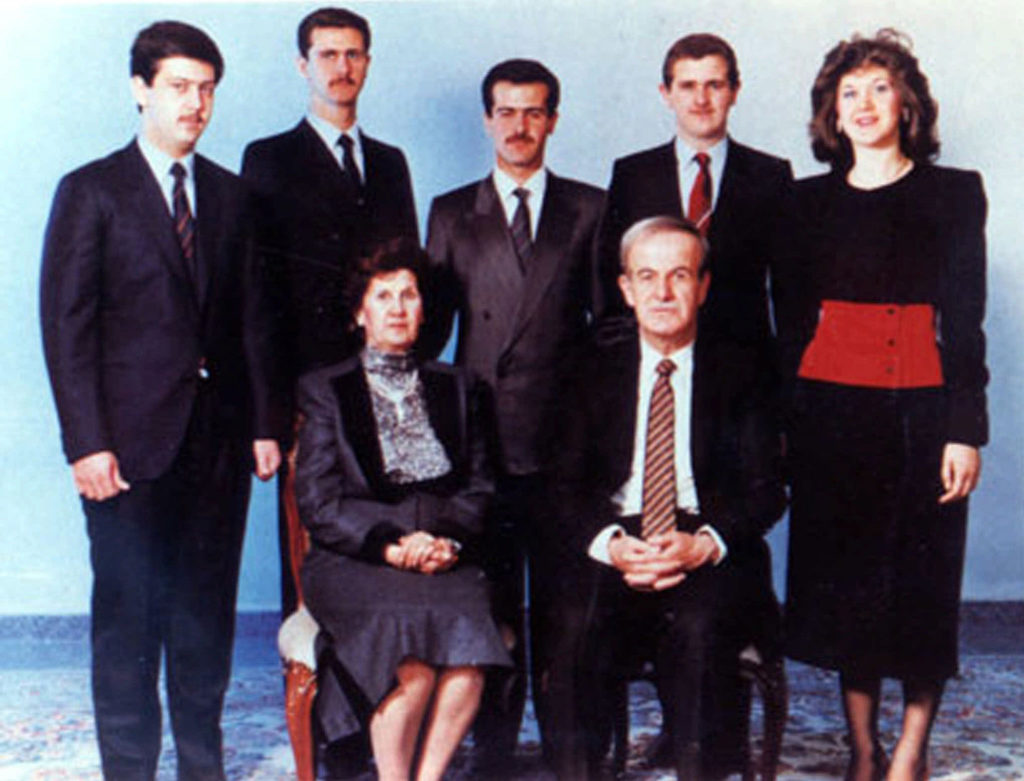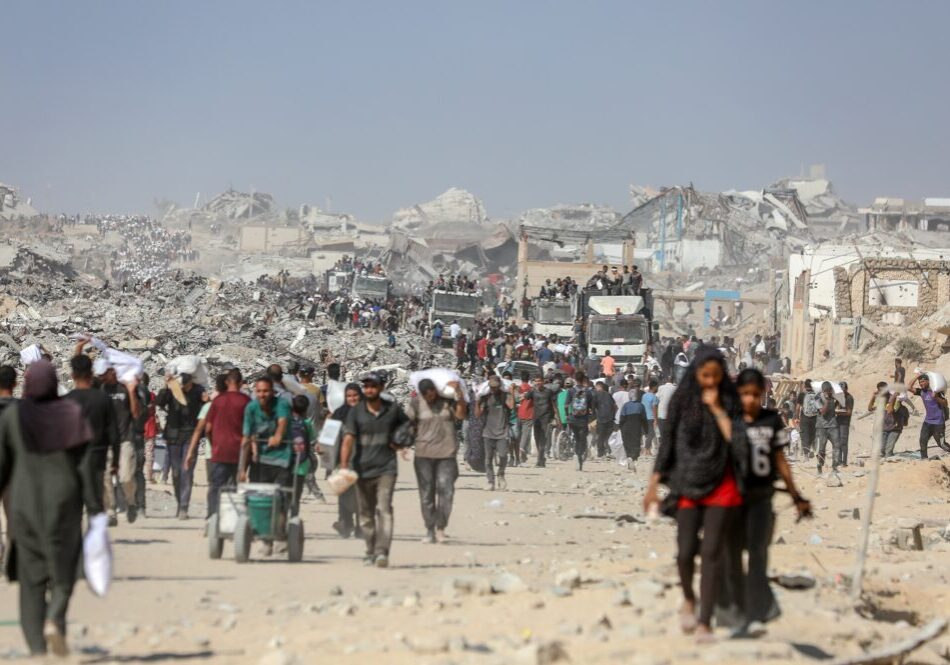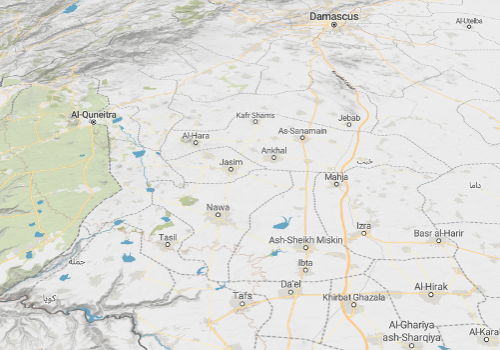Australia/Israel Review
All in the Family
Jun 27, 2011 | Douglas Davis

Douglas Davis
In the absence of free speech and a free press (among other political mod-cons) in Syria, Hafez al-Assad and then his son, Bashar, have cultivated the convenient habit of transacting business in the shadows, advancing and protecting – brutally, when necessary – the interests of the family and their fellow Alawites.
But behind the opaque veil that Syria’s dynastic family drew across their country 40 years ago, Damascus has always remained alive with intrigue. Over the years, a highly developed rumour mill has sprung up to process and disseminate the mixture of conjecture and fact that emanates from Damascus. For those who are interested in Middle East affairs, particularly Syrian affairs, London swiftly became the hub of the Syrian information exchange.
Take the unlikely succession of Bashar following the death of his father in June 2000. It wasn’t meant to be like that. Bashar, serious and studious, was heading for a mind-numbing career as an ophthalmologist. The real successor – the bruising brawler that Hafez had chosen to groom as his successor – was his favourite son Basel, Bashar’s older brother.
While the lacklustre Bashar was at ease in his studies, Basel enjoyed the pursuits of a tyrant-in-waiting, strutting around Damascus in full military uniform (he was in charge of the presidential security guard) and indulging his passions for fast cars and women, horses and shooting.
Then, on January 22, 1994, it all went wrong. The 33-year-old Basel smashed his car into a roundabout and was killed. An official statement in Damascus described the event as a “tragic accident”.
In fact, it was hardly tragic (on the contrary, it was a blessing for the people of Syria), and it may well not have been an accident. In a totalitarian state where few events are accidental, the car crash that killed Basel remained a mystery. How could Syria’s favourite son have been killed? More pertinently: Who could have killed him?
That fatal crash, informed sources allege, was not an accident, nor the result of a political vendetta, but a crime of passion within the ruling family. A well-placed Arab political source told me that Basel had fallen victim to the wrath of his formidable sister, Bushra.
Bushra was incensed by Basel’s uncompromising disapproval of her affair with a rising military star, Assef Shawkat, 15 years her senior and already married to two wives. But her anger went much deeper.
Basel had been convinced that his vehement opposition was sufficient to have ended the liaison. He was wrong. When he discovered Shawkat and Bushra together at the presidential palace one night, he banished Shawkat and, in a fit of rage, he beat Bushra, a woman of immense personal power and intelligence. His critical mistake was to administer the beating in the presence of the presidential guards.
My sources alleged that, desperate to be reunited with Shawkat and determined to avenge her humiliation, Bushra arranged for the braking mechanism on Basel’s brand-new Mercedes to be sabotaged just hours before he was to drive himself to Damascus International Airport for an early-morning flight to Germany.
For Hafez, it was a tragedy of cosmic proportions; for Bushra, it worked out just fine. Nine months after Basel’s death, Shawkat took Bushra as his third wife and the union was blessed by the Assad family.
General Shawkat is now one of the most powerful figures in Syria. He is head of military intelligence and deputy chief of the military apparatus. As such, he has been assigned the task of “cleansing” the country of opposition to Bashar’s leadership.
Shawkat, who is in his early sixties, is said to exercise power second only to his presidential brother-in-law. And, say the sources, he may not yet have reached the pinnacle of his political ambitions.
Meanwhile, Bashar was summoned home to undergo a crash course in presidency in order to replace the irreplaceable Basel. By all accounts Bashar did not shine and he leaned heavily on his brother, Maher, a rising star in the military firmament (Maher now heads the presidential guard). And on Shawkat.
Even so, Bashar’s well-lubricated passage to power was almost thwarted in the struggle for power that convulsed Damascus as Hafez lay on his death bed.
It is well known that Hafez’s brother, Rifa’at, initiated a putsch when Hafez al-Assad suffered from heart problems in 1983, which was put down and he was punished with exile in Paris. Less well known was an attempted Sunni coup just days before Hafez’s death which would have swept the minority Alawites from power.
A key figure behind the Sunni plot, a senior Arab intelligence source told me, was none other than former veteran prime minister Mahmoud Zoubi, who had been dismissed from office a couple of months earlier.
According to official reports, Zoubi committed suicide in a fit of depression after apparently being fingered in an anti-corruption campaign led by President-designate Bashar.
In fact, my intelligence source alleges, Zoubi played a leading role in the coup and was killed by security forces – his throat was slit – fully five days before his “suicide” was officially announced.
The prominence given to Bashar’s role in accusing Zoubi of corruption, added the source, was part of an elaborate attempt to bolster his weak public image and reassure his nervous Alawite constituency, which makes up just 7% of the population, that he was tough enough to protect their interests against the Sunni majority.
But that was then. Those lazy, hazy days of intrigue and secrecy that surround the mafia-like Assad family are now under serious strain as a result of the high-tech revolution that is shaking Bashar’s Alawite regime to its roots.
But all is not lost for Bashar. Not yet, at least. The Alawites, once a curious Muslim-Christian blend who have, more recently, aligned themselves with the Shi’ite branch of Islam, appear to retain their political, economic and military dominance (the majority of army conscripts are Sunni, but Alawites make up some 80% of the officer class).
At the same time, the Iranians appear determined to protect their political investment in the Syrian regime (which allows Teheran access and influence to Lebanon and its principal client, Hezbollah). Iran, Arab sources tell me, is unlikely to allow the Syrian regime to fall unless it is guaranteed continued influence under a successor regime.
But if the popular revolution persists, Western sources believe the regime is destined to collapse within three to six months. A similar reading exists in Jerusalem, where a senior Israel defence source noted that, having lost his legitimacy in the eyes of his people, Bashar’s fate has been sealed.
“Every week of demonstrations and deaths only makes things more difficult for him,” said the Israeli source. “His dilemma is between further concessions to the demonstrators – which will be seen as weakness and will intensify efforts to bring him down – and the adoption of more aggressive means of suppressing the demonstrations, which may accelerate his overthrow.
“I do not think he has a chance against the opposition,” added the source. “This is the twilight of his rule.”
In the meantime, Bashar and the wider Assad family are continuing to do what they do best: repressing and killing their own people in order to retain their increasingly tenuous hold on power.
Tags: Syria






